#Non-fiction Books
Explore tagged Tumblr posts
Text



71 notes
·
View notes
Photo



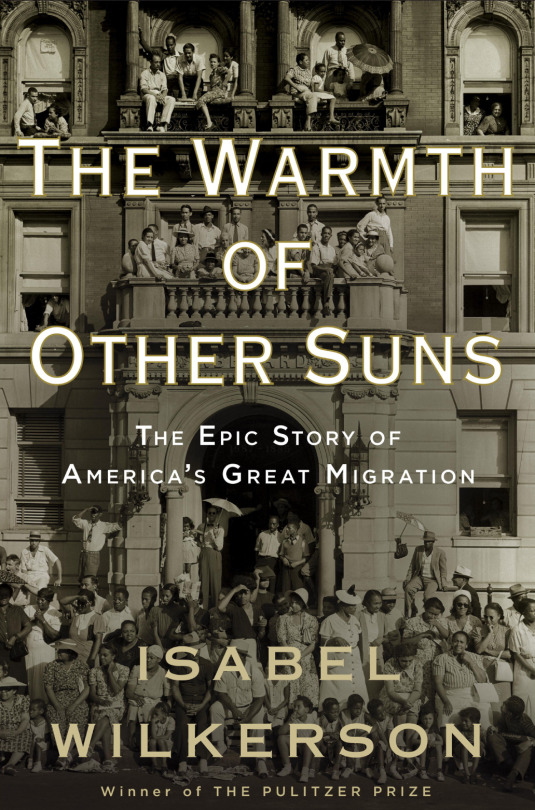
Black History Month: Nonfiction Recommendations
We Were Eight Years in Power by Ta-Nehisi Coates
“We were eight years in power” was the lament of Reconstruction-era black politicians as the American experiment in multiracial democracy ended with the return of white supremacist rule in the South. In this sweeping collection of new and selected essays, Ta-Nehisi Coates explores the tragic echoes of that history in our own time: the unprecedented election of a black president followed by a vicious backlash that fueled the election of the man Coates argues is America’s “first white president.”
But the story of these present-day eight years is not just about presidential politics. This book also examines the new voices, ideas, and movements for justice that emerged over this period - and the effects of the persistent, haunting shadow of our nation’s old and unreconciled history. Coates powerfully examines the events of the Obama era from his intimate and revealing perspective - the point of view of a young writer who begins the journey in an unemployment office in Harlem and ends it in the Oval Office, interviewing a president.
The Black History Book by DK Publishing
This volume is a captivating introduction to the key milestones in Black History, culture, and society across the globe - from the ancient world to the present, aimed at adults with an interest in the subject and students wanting to gain more of an overview. Explore the rich history of the peoples of Africa and the African diaspora, and the struggles and triumphs of Black communities around the world, all through engaging text and bold graphics.
The Three Mothers by Anna Malaika Tubbs
Much has been written about Berdis Baldwin's son James, about Alberta King's son Martin Luther, and Louise Little's son Malcolm. But virtually nothing has been said about the extraordinary women who raised them, who were all born at the beginning of the 20th century and forced to contend with the prejudices of Jim Crow as Black women. These three mothers taught resistance and a fundamental belief in the worth of Black people to their sons, even when these beliefs flew in the face of America's racist practices and led to ramifications for all three families' safety.
The Warmth of Other Suns by Isabel Wilkerson
In this beautifully written masterwork, Pulitzer Prize–winning author Isabel Wilkerson chronicles one of the great untold stories of American history: the decades-long migration of black citizens who fled the South for northern and western cities, in search of a better life. From 1915 to 1970, this exodus of almost six million people changed the face of America. Wilkerson compares this epic migration to the migrations of other peoples in history. She interviewed more than a thousand people, and gained access to new data and official records, to write this definitive and vividly dramatic account of how these American journeys unfolded, altering our cities, our country, and ourselves.
#black history month#black history#Black Authors#Nonfiction Reading#nonfiction#nonfiction reads#non-fiction books#library books#Reading Recs#reading recommendations#book recs#Book Recommendations#TBR pile#tbr#to read#Want To Read#book tumblr#Booklr#library blog#book blog
11 notes
·
View notes
Note
If you can only read 1 non-fiction and 1 fiction book for the rest of your life, what would it be? Why do you pick these books?
Do you have book or author recs to read?
Thank you :)
@curiousnonny
Well as a history fanatic, I’d want to choose All Quiet On The Western Front, just because it really does encapsulate how war should be looked at & I think it offers a very valuable perspective, especially one we rarely ever see in Western media. However, I’d want to choose that as my non-fiction, but it is a fictional story based on real events. Which feels like cheating but I honestly don’t read a lot of non-fiction, so that’s what I’m going to go with.
As for the fiction choice, surprise-surprise, probably The Hunger Games books. I feel like the impact/meaning would be lost if you wouldn’t be able to read the entire series, so I might say Mockingjay in particular, although it doesn’t stand up as well as The Hunger Games does as a stand-alone book. Mainly just because I do really enjoy the Hunger Games series. It’s such a cleverly crafted piece & holds so much societal critique with a unique love story that makes my writer’s brain go 😍AWOOGA🤤. It’s one of those masterpieces you can continue to pick apart forever & still find enjoyment & wow factor from. (At least for me it does)
As for any recommendations, I am a crime junkie at heart, so you best believe that’s what I’ll give you. There’s this series I started (& haven’t gotten to finish) by Lisa Jackson, called the Montana “To Die” series. I haven’t even finished the first book (Left To Die) but it’s absolutely THRILLING & a major page turner, so I highly recommend.
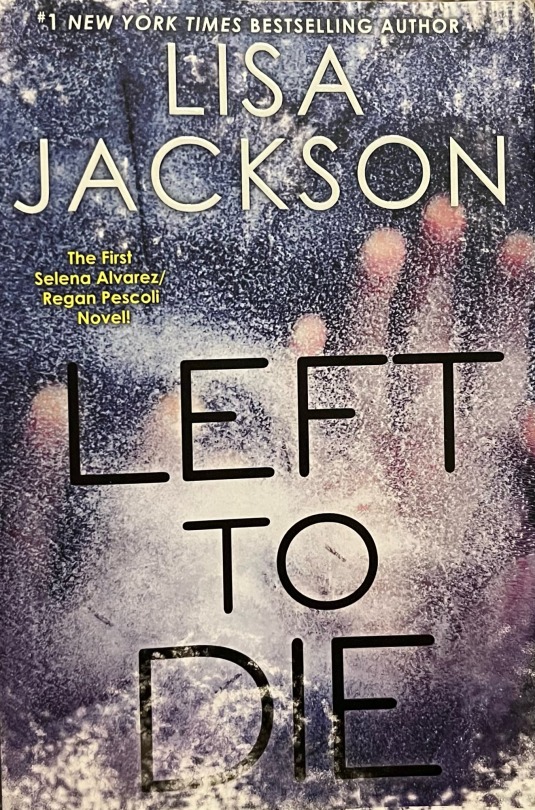
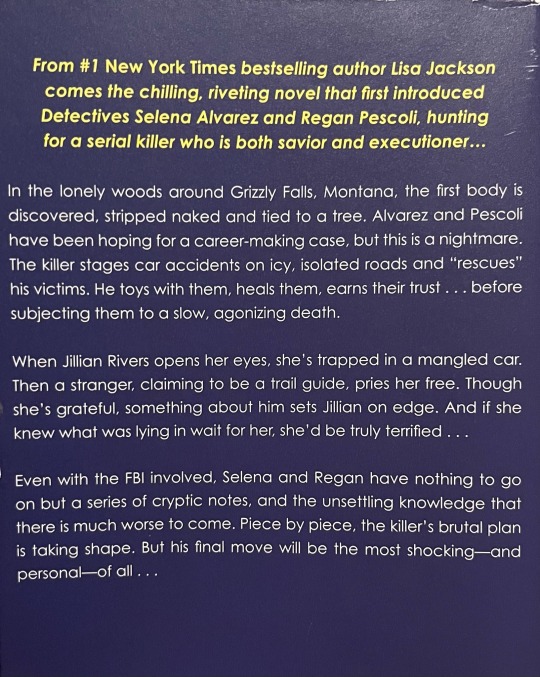
#fiction books#non-fiction books#book recommendations#all quiet on the western front#the hunger games#mockingjay#left to die#Lisa Jackson
4 notes
·
View notes
Text
Persepolis- my review
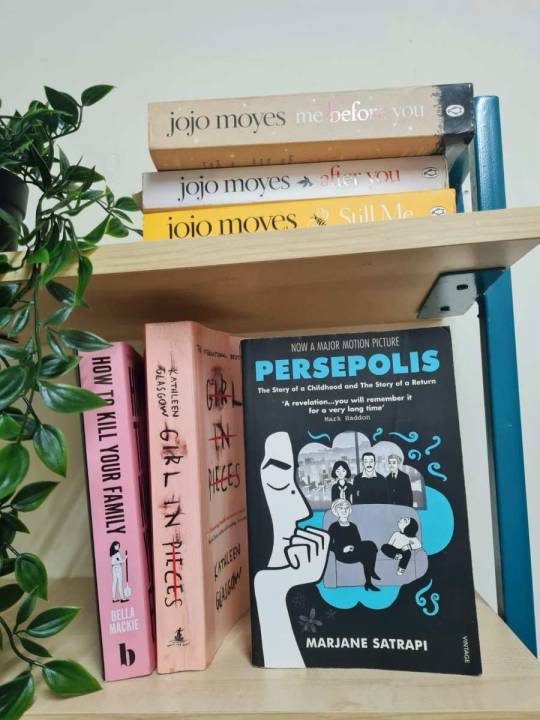
Hi! I read the first chapter of this read as a part of my literature course and ended up finishing the entire memoir the same week! I highly recommend you to read it.
Persepolis by Marjane Satrapi is an autobiographical work in the form of comic strips. Candid, often heartbreaking but threaded throughout with raw humor and hard-earned wisdom, it follows the life of a 10 year old all the way up to when she is 24. It follows her as she lives in a war-torn Iran filled with protests and oppression, as she is forced to leave her home as a 14 year old to leave in Austria, her eventual return back home, and her final departure from her homeland. It is very much worth reading.
Book blurb
Persepolis is the story of Marjane Satrapi’s unforgettable childhood and coming of age within a large and loving family in Tehran during the Islamic Revolution; of the contradictions between private and public life in a country plagued by political upheaval; of her high school years in Vienna facing the trials of adolescence far from her family; of her homecoming—both sweet and terrible; and, finally, of her self-imposed exile from her beloved homeland. It is the chronicle of a girlhood and adolescence at once outrageous and familiar, a young life entwined with the history of her country yet filled with the universal trials and joys of growing up.
Book review-
I loved this book. It starts with all the childlike innocence of a 10-year-old and follows Satrapi as the innocence is slowly chipped away. You follow the protagonist as she has to leave her parents, as she falls in love, and as she experiences the effects of war and the experiences of being isolated from her family. The comic strips with text boxes depicting this make reading a graphic experience and the best experience possible.
This read is somehow homorous, but poignant and painful at the same time. It was often heartbreaking to read and ends up giving you a lot of information about the daily life and situation in Iran at that time. All-in-all, I recommend this read to you even if you don’t normally read non-fiction, you will still like it (and this is coming from a reader who reads strictly fiction).
purchase this book here: https://amzn.to/47SV1IA [this is an associate link]
drug of choice? having someone read the book i recommended to them
#book blog#book recommendations#book review#book reviews#must read#non-fiction books#reading#bookblr#booklr#booklover#marjane satrapi#persepolis
3 notes
·
View notes
Text
Inspiration, Readers, and the Justification of Fiction
As a fiction author and a writer of non-fiction works, I am often asked, “Where does writing inspiration come from?” People sometimes worry about my writing and request directly to “not write about me.” I explain myself to such inquiries with the plea that those who worry about “snitching” come to grips with the nature of fiction. Life is the inspiration for fiction, but life represented in fiction is not an image portrait of people and places I know. Characters I create are composites and might come from a trait or two of someone I have become acquainted with, but they are never direct representations. I loath biographies and autobiographies and would poorly attempt to write those if called on. My non-fiction works are model theorem-based writings, and I do not use case studies, so, once again, almost everyone I know can feel safe that they are not used as examples (even with name changes).
I am always grateful to my readers. Writers need readers. Never knowing the exact impact of my books on my readers is the miasma of the writing profession. General decisions such as “I liked it,” or “Not quite my kind of material,” are commonly tossed around in feedback comments. While lingering hard for a literary or scholarly review is not my writing style. I like to hear that someone took the time to read my work regardless of their last opinion. “Thank you for reading,” is a response I feel is due to any reader of my writing as writing is useless as a task unto its purpose of words on a page. Readers fulfill a writer’s purpose. When a writer becomes complacent, readers know a writer begins a downward spiral into an uncaring, semi-belligerent relationship with the writer’s audience. Whether readers react to a writer’s books with praise or censure, writers must produce their best work in every published endeavor. It sometimes takes tough skin to continue to write. Coming up through years of rejection slips and resistant editors, I became a better writer with a realistic point of view. Not everyone will love a writer’s product, and not everyone will refuse a writer’s efforts. When I write, I hope to touch my readers in some way that gives back a reasonable exchange from the written words to the readers’ emotions, thoughts, or knowledge base.
I am unusual. I write both fiction and non-fiction works. I am half-lost when I do not work on fiction and non-fiction writing projects. Writing in more than one category balances the brain. This belief does not come from inexperience. I have tried to write simply fiction and wondered why I was wandering around during my day with “brain mush.” I have concentrated on non-fiction only to meet deadline requirements and experienced the creative spark eating at me to pen a fiction short story or two, disturbing my thoughts. When I focus on fiction projects added to my day, I know I am working on reaching readers further than a non-fiction book can involve. Coming to the page is an act of reason, creativity, and purpose. Fiction feeds my need to give something back about life while allowing me to adjust characters and settings for imaginative wandering. I do not write aimlessly. Transporting the reader to another place and time with fictive events and people chronicled lets the pages unwind for an armchair journey. Perhaps the book will satisfy a need for escapism or spark a new way to view the world. I am a reader and an author, and fiction is as worthy as non-fiction in contributing to societal value. I do not see the day has arrived to choose between fiction and non-fiction. Fiction and non-fiction are not valued alike, but they both require a serious decision on the writer’s part to pen a work meant for reader consumption. Fiction should not be second-class. My advice to other writers is to take writing seriously regardless of venue and to put forward the best work possible knowing writing for a readership is its own reward.
*Look for the next book of Fiction short stories "Slipping Sideways" coming soon.
Works (Fiction and Non-fiction)
by Dr. Kimberly A. McKenzie-Klemm, CEO TPGR Solutions, LLC
The Rest Room https://www.barnesandnoble.com/w/the-rest-room-kimberly-a-mckenzie/1121633488
The Dream of Keriye https://www.amazon.com/Dream-Keriye-Kimberly-Mckenzie/dp/132912541X
Rise Times Souls Love https://www.barnesandnoble.com/w/rise-times-souls-love-kimberly-a-mckenzie-klemm/1126956790
Growing Past https://www.amazon.com/Growing-Past-Kimberly-McKenzie/dp/1495293467
TEAMWORK (Together Everyone Achieves More) https://www.barnesandnoble.com/w/teamwork-kimberly-a-mckenzie-klemm/1126409904
The Quality 4P’s Model Handbook https://www.lulu.com/shop/kimberly-mckenzie-klemm/the-quality-4ps-model-handbook/paperback/product-8g2w5n.html?page=1&pageSize=4
The Quality 4P’s Model Guidebook for Chapters 1 & 2 https://www.lulu.com/shop/dr-kimberly-mckenzie-klemm/the-quality-4ps-model-guidebook-for-chapters-1-2/paperback/product-kvnn29m.html?q=The+Quality+4P%27s+Model+Guidebook+for+Chapters+1+%26+2&page=1&pageSize=4
2 notes
·
View notes
Text
10 Tips to Integrate English Learning Into Your Routine

If you are an English learner who is looking for ways to hone your skills and integrate English learning into your daily routine, then you have come to the right place. With these 10 tips, you can incorporate these tactics into your beginner’s studies and make English learning a habit that comes as naturally as brushing your teeth.
Set a schedule – and stick to it: The best way to make sure you’re consistently learning English is by setting up a study plan that works for your lifestyle. Whether you prefer studying in the morning or after work, make sure you have time set aside specifically for English practice every day. With discipline, consistency and dedication, you will soon start to see improvements in your language skills.
Listen and repeat: Listening is an important part of learning any language. Try to listen to native English speakers as much as possible — this can be through audio recordings, movies or TV shows, podcasts, etc. As you listen, take notes on new words, phrases and pronunciation. Then, try to repeat what you heard aloud as this will help with pronunciation as well as confidence in speaking English.
Read everything: Reading is one of the most powerful tools when it comes to learning any language - even if you’re just a beginner. Start with shorter texts such as articles, blog posts or non-fiction books, and then gradually move on to longer texts such as novels or short stories. As you read, take notes of any words or phrases that you don’t understand and look them up later.
Play language learning games: Language learning can be fun and rewarding. There are a variety of online English games and apps that can help you learn in a more creative way. From word quizzes to hangman, these games can help to make English learning more interactive and engaging.
Make notes: Whether it’s new vocabulary or phrases you come across during movies or conversations with native English speakers, jot down any unfamiliar words and look up their meaning later. This can help you to expand your knowledge of the English language and remember words more easily.
Talk with native speakers: One of the best ways to improve your conversational skills is by talking with native English speakers. You can find these people online through forums or social media, or in real life at meet-ups or language exchange events. Talking with native speakers will help to increase your fluency and confidence when speaking English. You can also look into non fiction books for beginners for learning a language.
Use mnemonics: Mnemonics are memory devices that can be used to remember information more easily. For example, if you want to remember the spelling of a particular word, create a sentence using the letters of that word as its components. This will help you recall the word and its meaning more easily.
Watch movies: Watching movies is a great way to learn English, as it provides an immersive experience that you can’t get from any other medium. Try to watch movies in their original version (i.e., with subtitles) and observe how words are used in various contexts and situations.
Find a language buddy: Learning something new is always more enjoyable with a friend and language buddies are people who are willing to help you practice your English skills for free. You can find them online or in person, and they can be a great source of support and motivation when learning any language. Plus, it’s always nice to have someone to practice with.
Have fun: Learning a language does not have to be tedious or boring. Incorporate activities that you enjoy into your learning routine, such as listening to music in English, watching comedy shows or playing word games with friends. Having fun while learning will make the entire process more enjoyable and rewarding.
By following these steps, you’ll go from a beginner to experienced English speaker in no time. So make sure to keep these tips in mind and get started on your language-learning journey today with https://www.bbbg.org/.
#Non-Fiction Books for Beginners#Language Learning Tips#English Language Practice#Daily Routine Learning#Language Incorporation#Non-Fiction Books
2 notes
·
View notes
Text
The Journey: Appalachia to Paradise to Purgatory by Colonel Vaughan Witten
Colonel Vaughan Witten is a man who has truly lived a remarkable life. Born in Anawalt, West Virginia, in 1935, he grew up in a small coal mining village as the son of a coal miner and Baptist minister. At the age of just 15, he graduated from Washington High School and went on to enlist in the U.S. Air Force during the Korean War with his parents' permission.
Over the course of his life, Colonel Witten achieved many remarkable accomplishments. He earned two BA degrees, one from Shaw University and one from North Carolina State University, before going on to earn a Ph.D. in psychology from North Carolina State in 1989. He then spent 34 years as a psychology and sociology professor at Shaw University, Park College, and Webster University.
One of Colonel Witten's most notable accomplishments is the publication of his autobiography, "The Journey: Appalachia to Paradise to Purgatory." In this book, Colonel Witten tells his own story of growing up in a small community and rising to become a Chief Master Sergeant in the Air Force, as well as earning two BA degrees and a Ph.D. from a world-class university.
"The Journey: Appalachia to Paradise to Purgatory" is a powerful and inspiring book that presents the innocence, happiness, and final disappointment of a West Virginia coal miner's son who sees his country on the slippery slope to immorality and the highest levels of academia. Colonel Witten's story is a testament to the power of perseverance, determination, and a strong sense of community and faith.
If you're interested in learning more about Colonel Vaughan Witten and his inspiring life story, you can visit his website at https://colonelvaughanwitten2.com/. Don't miss out on the opportunity to learn from this remarkable figure from Appalachia.

#best non fiction books#travel writing#non fiction books to read#autobiography books#non-fiction books#best travel books
3 notes
·
View notes
Text
2024 End of Year Reading Round Up — Non-Fiction
It’s time for a bunch of reading roundups as we get to the end of the year, so I’ve decided to add my own, splitting into two posts, this one and a fiction-focused round up. This list comprises of my favorite non-fiction books I read from Jan 01 to Dec 01, hope you enjoy!
1 note
·
View note
Text
Pub Day Review: "Four Against the West" by Joe Pappalardo
Growing up as the child of parents who liked to watch old Westerns and then growing into a passion with a passion for history, I had a vague idea of who Judge Roy Bean was when I saw this book available to request on NetGalley, and all those things combined to make it a book I wanted to read. Having known next to nothing about James, Sam, and Joshua Bean, the book became all the more…
#American history books#American west#Four Against the West#Joe Pappalardo#non-fiction books#Roy Bean
1 note
·
View note
Text
Fresh Reads: Latest Book Releases to Discover
Summer is the perfect time to kick back, relax, and dive into a captivating book. Whether you’re lounging by the pool, soaking up the sun at the beach, or enjoying a quiet afternoon in the shade, a good book can transport you to new worlds and spark your imagination. And what better way to embark on a literary adventure than with the latest book releases? Imagine this: The sun is shining, the…

View On WordPress
#Author spotlight#Bestselling books#Book Recommendations#Book reviews#Fiction books#Literary discoveries#Literature trends#New book releases#Non-fiction books#Reading List
0 notes
Text

Carlo Bevilacqua, Randy Manuel
The alternative communities taken by Carlo Bevilacqua
Carlo Bevilacqua , a photographer known for his socio-anthropological investigation, presents a selection of shots taken from his projects over the last five years in various parts of the world . These projects then materialized in two wonderful photographic books: Utopia, dreaming the impossible and Into the silence, Hermits of the third millennium . Bevilacqua's work explores contemporary utopian communities around the world, focusing on alternative, spiritual, artistic, hippie and environmentalist communities . He seeks to define the meaning of “utopia” in the current era and documents how these communities have faced pressure from the dominant culture. Another important theme in his work is the narrative of Queer communities , particularly relevant in India, Mexico and among Native North Americans .


#carlo bevilacqua#photographer#culture#lgbtq+#socio-anthropological investigation#utopia dreaming the impossible#into the silence hermits of the third millennium#photography books#non-fiction books#queer communities#india#mexico#native north americans
0 notes
Text
Amazing Border Collie
There’s a reason why the border collie is my favorite dog breed. I was expecting to take a rugged hike after a big snow in the high country without seeing a single hint of society. However as is so often the case lately, some city people decided to invade my domain. As I was hiking past the free range cattle a truck came driving up the snowy road to the troll. Rather than take the dog for a…
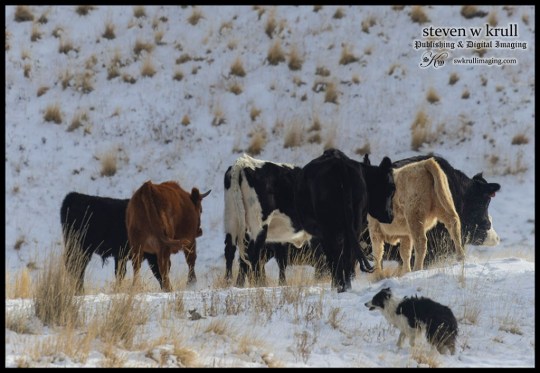
View On WordPress
#acrylic prints#books#books for sale#books worth reading#border collie#canvas prints#cattle#fiction books#metal art#metal prints#non-fiction books#photography#Pictures for sale#prints for sale#ranch#Spirit of the Wolf#working dogs#working ranch
1 note
·
View note
Photo
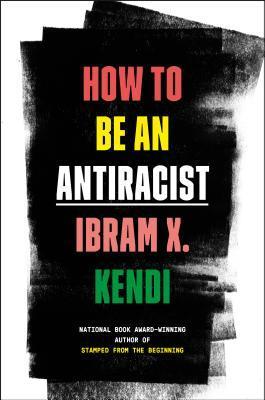


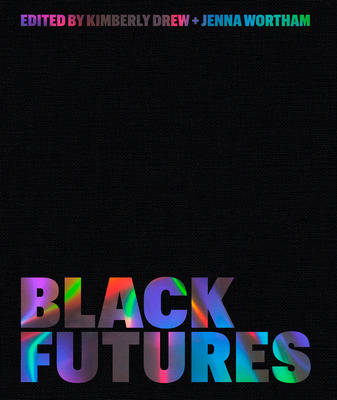
Black History Month: Nonfiction Recommendations
How to Be an Antiracist by Ibram X. Kendi
Ibram X. Kendi's concept of antiracism reenergizes and reshapes the conversation about racial justice in America - but even more fundamentally, points us toward liberating new ways of thinking about ourselves and each other. In How to be an Antiracist, Kendi asks us to think about what an antiracist society might look like, and how we can play an active role in building it.
In this book, Kendi weaves together an electrifying combination of ethics, history, law, and science, bringing it all together with an engaging personal narrative of his own awakening to antiracism. How to Be an Antiracist is an essential work for anyone who wants to go beyond an awareness of racism to the next step: contributing to the formation of a truly just and equitable society.
Caste by Isabel Wilkerson
Beyond race, class, or other factors, there is a powerful caste system that influences people’s lives and behavior and the nation’s fate. Linking the caste systems of America, India, and Nazi Germany, Wilkerson explores eight pillars that underlie caste systems across civilizations, including divine will, bloodlines, stigma, and more. Using riveting stories about people - including Martin Luther King, Jr., baseball’s Satchel Paige, a single father and his toddler son, Wilkerson herself, and many others - she shows the ways that the insidious undertow of caste is experienced every day.
The Black Church by Henry Louis Gates, Jr.
For the young Henry Louis Gates, Jr., growing up in a small, residentially segregated West Virginia town, the church was a center of gravity - an intimate place where voices rose up in song and neighbors gathered to celebrate life's blessings and offer comfort amid its trials and tribulations. In this tender and expansive reckoning with the meaning of the Black Church in America, Gates takes us on a journey spanning more than five centuries, from the intersection of Christianity and the transatlantic slave trade to today’s political landscape. At road’s end, and after Gates’s distinctive meditation on the churches of his childhood, we emerge with a new understanding of the importance of African American religion to the larger national narrative - as a center of resistance to slavery and white supremacy, as a magnet for political mobilization, as an incubator of musical and oratorical talent that would transform the culture, and as a crucible for working through the Black community’s most critical personal and social issues.
Black Futures edited by Kimberly Drew & Jenna Wortham
Kimberly Drew and Jenna Wortham have brought together this collection of work - images, photos, essays, memes, dialogues, recipes, tweets, poetry, and more - to tell the story of the radical, imaginative, provocative, and gorgeous world that Black creators are bringing forth today. The book presents a succession of startling and beautiful pieces that generate an entrancing rhythm: Readers will go from conversations with activists and academics to memes and Instagram posts, from powerful essays to dazzling paintings and insightful infographics.
#black history month#black history#Black Authors#Nonfiction Reading#nonfiction#non-fiction books#nonfiction reads#Library Books#Book Recommendations#book recs#Reading Recs#reading recommendations#TBR pile#tbr#to read#Want To Read#Booklr#book tumblr#book blog#library blog
2 notes
·
View notes
Text
Maus- a memoir you should read
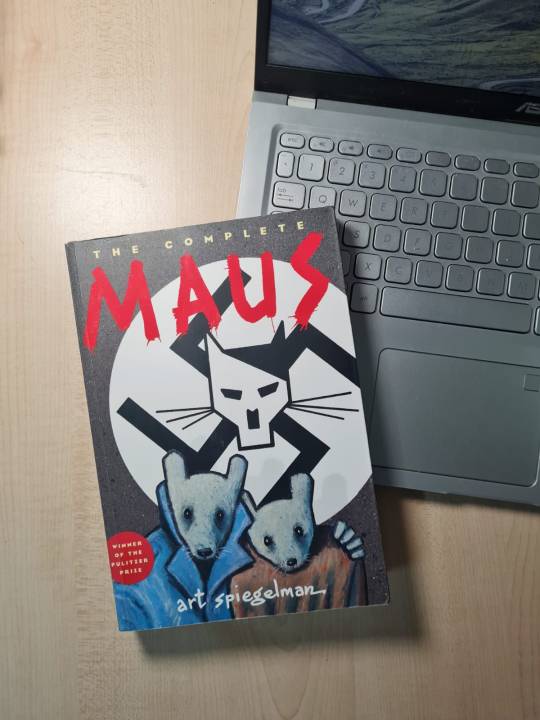
Hi! I read this graphic novel as a part of my english course and ended up reading its second half in the same sitting. Needless to say, I definitely recommend this to you.
Maus (Maus I and II), is a graphic novel in a comic strip format detailing Vladek Spiegelman, a Jewish survivor of the Holocaust’s accounts of Hitler’s Europe and living through it. It also details the lives of Art Spiegelman, his son, as he deals with the guilt of being a second-generation survivor and not actually living through the horrors his parents had to endure.
The Plot
The Pulitzer Prize-winning Maus tells the story of Vladek Spiegelman, a Jewish survivor of Hitler’s Europe, and his son, a cartoonist coming to terms with his father’s story. Maus approaches the unspeakable through the diminutive. Its form, the cartoon (the Nazis are cats, the Jews mice, the Poles as pigs, and Americans as dogs), shocks us out of any lingering sense of familiarity and succeeds in “drawing us closer to the bleak heart of the Holocaust” (The New York Times).
Maus is a haunting tale within a tale. Vladek’s harrowing story of survival is woven into the author’s account of his tortured relationship with his aging father. Against the backdrop of guilt brought by survival, they stage a normal life of small arguments and unhappy visits. This astonishing retelling of our century’s grisliest news is a story of survival, not only of Vladek but of the children who survive even the survivors. Maus studies the bloody pawprints of history and tracks its meaning for all of us.
Why you should read it
Let’s start with the format. The events seesaw with one side being Art, the son, talking to Vladek, his father, as Vladek accounts his life as in that time, and the other side Vladek’s life as he did his best to keep him and his wife alive. The formatting does not take away the truth and seriousness of the Holocaust, but it does balance it out with some much-needed lighter conversations where survival is not the only motive.
Its accounts of the Holocaust. This read depicts the Jews as mice and the Germans as cats (there are a thousand allegories you can take from that one), the Americans as dogs, and Poles as pigs. But despite this representation, it does not have any humour per say. It is a very much matter-of-fact recounting of starvation, survival, violence, and plain suffering.
The depictions of the Jews, especially Vladek and his family. Art’s parents, Vladek and Anja Spiegelman, were two Jews from Poland who survived through the Nazi ghetto of Sosnowiec and the extermination camp of Auschwitz-Birkenau. They were survivors and they bargained and used up favours in order to do this. Vladek saw the gas chambers used to exterminate Jews (like vermin, like mice, you can’t help but read into that one).
Vladek was portrayed as a very flawed man, whose flaws did not disappear with what he lived through and I loved his portrayal. He was not painted as a victim who gave into the sufferings of Jews, or a survivor who was a beloved hero or anything like that. He was a flawed person who ate snow for days to survive and more, and I loved that.
Art and Vladek’s relationship. I loved that this book delves into Art’s guilt of not living through all his parents survived, and his feelings of competing with his (dead) older brother. It makes Maus a very holistic representation of not only the Holocaust and Hitler’s Europe, but also the years long after that and the effects that proved to be lasting through generations.
Its important to know that, as talked about in the book, this book is based closely on the author, Art Spiegelman’s father’s memories of the death camps and Hitler’s Europe, hours on hours of research and took a total of whopping 13 years to complete.
All in all, I recommend you to pick this up, regardless of how old you are!
purchase this book here: https://amzn.to/45UuqZF [this is an associate link]
“Yes, life always takes the side of life, and somehow the victims are blamed. But it wasn’t the best people who survived, nor did the best ones die. It was random!”
View On WordPress
#book recommendations#book review#book reviews#memoirs#must read#non-fiction books#reading#maus#art spiegelman
1 note
·
View note
Text



"HARDCORE MUSIC WAS A NEW FORM -- SHORT, DISSONANT BLASTS, ANGRY SOCIOPOLITCAL LYRICS..."
PIC(S) INFO: Spotlight on a movie poster for "American Hardcore" (2006), the film documents the early '80s rise of hardcore -- a musical and cultural revolution born of suburban ennui that ignited a national movement. Also included are first & second editions of "American Hardcore: A Tribal History" (2001) written by Steven Blush, on which the documentary was based.
"Hardcore music was a new form -- short, dissonant blasts, angry sociopolitical lyrics delivered as a primal scream -- with little regard for previous rock tradition; low-budget recordings with emphasis on intensity and attitude.
Hardcore was more than just music. It was also a national network created for kids and by kids -- with no major record companies, managers, or agents involved. It was the dawn of the DIY spirit, and much of the independent rock vibe we still see today arose from that initial ethos.
"American Hardcore" pays tribute to the pioneers of the movement. It's a testament to the strength of unity and dedication to a common belief, the undeniable power of youth, and the need to reveal against a fucked-up world. "American Hardcore" is a sobering social commentary on America in the early 1980s, and by implication, an indictment of what's up with our nation today."
-- STEVEN BLUSH (writer/producer) & PAUL RACHMAN (director/producer)
Sources: www.posterazzi.com/american-hardcore-movie-poster-print-27-x-40-item-movei0217, Microcosm Publishing, & www.njuskalo.hr/literatura-knjige.
#American Hardcore 2006#Hardcore punk#80s hardcore#American hardcore punk#American hardcore#80s punk#1980s#American Hardcore: A Tribal History#Steven Blush#Poster Art#Movie Poster#Documentary#Books#Non-fiction Books#L.A.'s WASTED YOUTH#Punk rock#80s#L.A. hardcore#L.A. punk#L.A. hardcore punk#80s hardcore punk#American Style
0 notes
Text
The Power of Learning English as a Second Language with Non Fiction Adventure Books

Ever caught yourself daydreaming about all the incredible things you could do if you spoke English? Picture this: chatting effortlessly with people from around the globe, scoring awesome job opportunities, and diving into a sea of knowledge that's only a click away. Learning English as a second language is like strapping on a jetpack of possibilities. In this article, we're gonna explore why learning English is the ultimate power move. So if you dream of working for multinational corporations, pursuing higher education abroad, or establishing your own global network, English proficiency is something to master to get there.
Non fiction adventure books transport readers to the far reaches of the world, offering thrilling accounts of real-life expeditions and daring feats. These books vividly capture the essence of exploration, taking readers on journeys through uncharted territories and untamed nature. From mountain summits to deep ocean dives, these narratives provide a window into the lives of intrepid adventurers who face challenges, conquer fears, and uncover the unknown.
English as a Global Language
English has emerged as the ultimate global language and has become the common thread that weaves together the diverse tapestry of humanity. With over 1.5 billion English speakers worldwide, it is the language of international communication, commerce, and diplomacy.
Delving into the pages of non fiction adventure books allows readers to experience heart-pounding escapades without leaving their armchairs. These captivating narratives are grounded in truth, weaving together tales of survival, discovery, and the human spirit's unyielding determination. Whether it's traversing the Amazon rainforest, braving the frozen expanses of Antarctica, or setting foot on unclimbed peaks, these books offer a chance to live vicariously through the fearless individuals who dared to venture into the wild.
The power of English lies not only in its prevalence but also in its versatility. It serves as a lingua franca, allowing individuals from different language backgrounds to communicate effectively. Whether you find yourself in a bustling metropolis, a remote village, or an academic conference, the chances are high that English will be the language of choice for intercultural communication.
Being able to seamlessly converse with people from various cultures, exchanging ideas, and building bridges of understanding is something many of us take for granted. English proficiency means you can interconnect, fostering meaningful connections and nurturing a sense of global citizenship. It is the language that bridges gaps and unites individuals in progress and understanding. By embracing English as a global language, you become a part of a global conversation, enriching your life, expanding your worldview, and embracing the boundless possibilities that await you on this remarkable journey.
Adventure non fiction books offer a unique blend of adrenaline and insight. Through detailed accounts, readers gain a deeper understanding of the challenges adventurers face, the environments they navigate, and the personal growth that arises from their journeys. From historic explorations that shaped the world to contemporary tales of pushing human limits, these books provide an unparalleled glimpse into the extraordinary.
Gain Professional Opportunities
In today's interconnected world, where business transcends borders and collaboration knows no geographical limitations, English fluency has become a prized asset in the job market. Here's how mastering English can open doors to remarkable professional prospects:
Global Communication: English is the language of international communication in various industries. Companies with a global presence rely on English as their primary means of communication. By being proficient in English, you can effectively interact with colleagues, clients, and partners from different countries, bridging cultural gaps and facilitating smooth business operations. You can also get our Non Fiction Deluxe Classroom Sets in English language.
Access to Global Markets: English proficiency provides you with access to a vast range of global markets. Many multinational corporations conduct their business in English, and possess strong English language skills enhances your ability to participate in cross-border transactions, negotiate deals, and build relationships with clients worldwide.
Career Advancement: English fluency often translates into career advancement opportunities. Employers recognize the value of employees who can confidently navigate the international landscape. Being proficient in English demonstrates your adaptability, cultural awareness, and willingness to take on new challenges, making you an attractive candidate for promotion or advancement within your organization.
Increased Job Opportunities: Fluency in English expands the pool of job opportunities available to you. Many companies require employees to have a good command of English, particularly in positions that involve customer interaction, global coordination, or working with international teams. Mastering English broadens your career options, opening doors to positions that require bilingual or multilingual capabilities.
Academic and Research Opportunities: English is the dominant language in academia and research. Proficiency in English enables you to pursue higher education opportunities at renowned institutions worldwide. You can access a wider range of academic resources, participate in international conferences, and collaborate with researchers from different countries. English fluency also enhances your ability to contribute to global research initiatives and publish your findings in reputable journals.
Networking and Collaboration: English serves as a common language for professionals from diverse backgrounds to connect and collaborate. By mastering English, you can expand your professional network, establish connections with experts in your field, and engage in cross-cultural collaborations. These interactions can lead to mentorship opportunities, knowledge sharing, and even potential partnerships or business ventures.
Enhanced Professional Communication: Effective communication is a cornerstone of professional success. English proficiency equips you with the skills to articulate your ideas clearly, present persuasive arguments, and engage in productive discussions. Strong English language skills enable you to convey your expertise, make a lasting impression, and build rapport with colleagues, clients, and industry leaders.
Access to Knowledge and Resources
In an era defined by information and digital connectivity, the ability to access knowledge and resources is invaluable. English, as the predominant language of academia, research, and the internet, serves as a gateway to information and invaluable resources.
Non fiction adventure books serve as a reminder that the greatest journeys often happen outside the realm of fiction. These stories paint a vivid picture of the challenges, triumphs, and setbacks faced by those who seek to conquer the unknown. Through meticulous research and firsthand accounts, these books celebrate the indomitable spirit of adventurers who push boundaries, challenge norms, and inspire us to embrace our own thirst for discovery. Here's how learning English grants you access to knowledge:
Global Academic Reach: English is the lingua franca of education and research worldwide. Many leading universities, research institutions, and scholarly journals publish their work predominantly in English. By mastering English, you can tap into a rich ecosystem of academic resources, including research papers, scientific publications, and educational materials. This enables you to stay at the forefront of your field, engage with groundbreaking research, and contribute to the global body of knowledge.
Educational Opportunities: Proficiency in English expands your opportunities for further education. Many prestigious universities offer a wide range of programs taught in English, providing you with access to world-class education. Whether you aspire to pursue undergraduate, graduate, or postdoctoral studies, having a strong command of English opens doors to renowned academic institutions and increases your chances of securing scholarships or study abroad opportunities.
Online Resources and E-Learning: The internet is a treasure trove of information, and a significant portion of online content is in English. By being fluent in English, you can navigate this digital landscape with ease, accessing online courses, educational platforms, and digital libraries that offer a plethora of resources across various disciplines. English fluency enables you to make the most of e-learning opportunities, expanding your skills and knowledge base at your own pace.
Literature and Cultural Works: English is a language rich in literature, boasting an immense canon of novels, plays, poetry, and non fiction works. By learning English, you gain direct access to the literary masterpieces of William Shakespeare, Jane Austen, Mark Twain, and countless other influential authors. Reading these works in their original language allows you to savor the subtleties of the writing, appreciate cultural nuances, and engage deeply with the themes and messages conveyed.
Media and Popular Culture: English dominates the global media landscape, with English-language films, television shows, music, and digital content reaching audiences worldwide. By understanding English, you can enjoy popular culture including movies and TV shows in their original language, appreciate the lyrics in English songs, and follow digital content creators who communicate primarily in English.
Business and Professional Resources: English proficiency grants you access to a wide range of professional resources, including industry publications, business reports, and professional development materials. English-language resources offer insights into global trends, best practices, and innovations across various sectors.
Travel and Exploration: English is widely spoken in many countries and is often the language of tourism. When you learn English, you equip yourself with the ability to navigate unfamiliar territories, communicate with locals, and immerse yourself in the cultures of English-speaking destinations. It enhances your travel experiences, allowing you to engage more deeply with the local communities, appreciate their traditions, and build connections with people you meet along the way.
Personal Growth and Confidence: Learning English as a second language not only expands your cultural horizons but also nurtures personal growth and boosts confidence. As you develop proficiency in English, you gain a sense of accomplishment and the courage to express yourself effectively in a language that may have once felt unfamiliar. This newfound confidence can extend to other areas of your life, empowering you to engage in conversations, take on new challenges, and embrace opportunities with greater self-assurance.
Enhancing Communication Skills through Learning English
Learning English as a second language not only equips you with the ability to communicate in a globally recognized language but also enhances your overall communication skills. Here are some ways in which learning English can have a profound impact on your ability to express yourself effectively and connect with others:
Clear and Effective Expression: Learning English requires attention to grammar, vocabulary, and pronunciation. As you develop your English language skills, you become more conscious of how you articulate your thoughts. This awareness translates into clearer and more precise expression, allowing you to convey your ideas with confidence and coherence.
Listening and Comprehension: Language learning is a two-way street, and mastering English involves honing your listening and comprehension skills. Through exposure to various English accents, dialogues, and conversations, you become more attuned to different speech patterns and nuances. This active listening practice strengthens your ability to understand spoken English, even in different contexts or with varying accents.
Cultural Awareness and Contextual Understanding: Language is deeply intertwined with culture, and by learning English, you gain insights into the cultural nuances and context behind the language. This cultural awareness enhances your ability to communicate effectively with English speakers from different backgrounds. You become more sensitive to cultural differences, adapting your communication style to ensure clarity and avoid misinterpretations.
Non-Verbal Communication: Effective communication extends beyond words. Learning English involves understanding non-verbal cues, such as facial expressions, gestures, and body language, which play a significant role in conveying meaning.
Confidence Building: Language learning requires stepping out of your comfort zone and embracing new challenges. As you gain proficiency in English, you develop confidence in your ability to communicate effectively. This newfound confidence extends beyond English conversations and can positively impact your overall communication skills in your native language as well. You become more comfortable expressing your thoughts, engaging in conversations, and presenting your ideas to others.
Transferable Skills: The skills you acquire while learning English can be applied to other areas of communication as well. As you navigate the complexities of English grammar, vocabulary, and syntax, you develop analytical thinking, problem-solving skills, and attention to detail. These skills are transferable to other professional and personal communication scenarios, enhancing your overall ability to express yourself succinctly and persuasively.
Conclusion
In a nutshell, learning English as a second language opens up a world of opportunities. It's not just about being able to speak a global language, you get to connect with people from all over, boost your career prospects, and live in a world of knowledge and cultural wonders. Plus, it's not just about the language skills, it's about growing personally, appreciating different cultures, and making friendships that go beyond borders. So, hop on this English-learning adventure and get ready for an epic journey where you'll discover endless possibilities and have a ton of fun along the way.
#Non Fiction Adventure Books#Language Learning#Adventure Reading#Non-Fiction Books#Second Language Acquisition#Learning English
0 notes